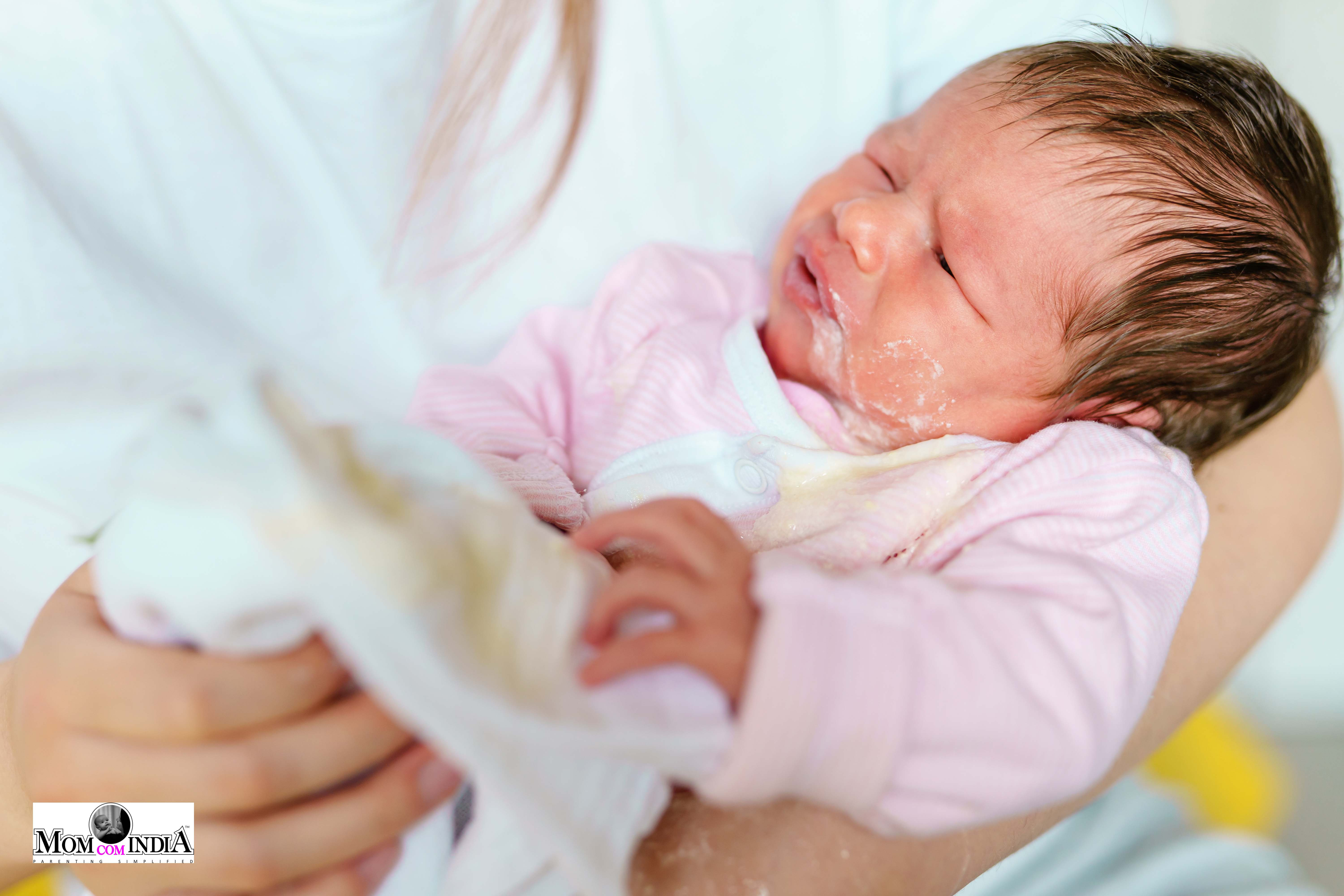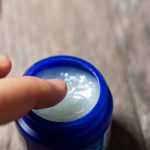Baby Spit Up | Why Is Your Newborn Throwing Up & What Should You Do?
Reaching out for a cloth or bib because your baby threw up? And that too even after your baby has burped. New parents often wonder whether they need to worry about this common occurrence. If you are a new parent or caregiver, newborn spit up might mean more than the mess on your or baby’s clothes. Taking examples from our first-hand experience with it, the article is sure to ease your parenting experience.

Curdled white remnants of milk coming out of baby’s nose & mouth. Sour in odour it resembles split milk. Should you worry? Is this vomit? Is the baby unable to hold the milk in its tummy? Should I see a doctor? Am I doing something wrong? Like you, I faced the dilemma in the early months of raising my son, Kabir. We had noticed minor spit ups while he was on breast milk, but on adding a feed of formula milk, the spit ups increased. Kabir’s discomfort while the spit up was also evident. We spoke to our doctor and researched about newborn spit up to understand more about it. This also happened to be one of the most common query posted to us, that we come across while reading the feedbacks. To be upfront with you, spit ups are absolutely normal.
A newborn baby is yet to form a strong digestive system. Spit ups are more frequent amongst newborn. About 99% newborn’s spit up often. This reduces as the baby grows up. 50% babies have it for the first 6 months and 5-10%babies continue to have spit ups up to 1 year. These facts alone should be able to calm your anxiety. Going deeper into understanding this occurrence, let me address your concerns-
Why does spit up happen?
Spit up is partially digested milk, that appears to be of a curdled-milk/paneer like texture. It can happen anytime, even after burping. If the baby has had too much of milk or engaged in a lot of movement after drinking milk, the chances of a spit up are more. This tends to reduce as the baby grows up and its digestive system matures.
When does it stop?
As mentioned above, the digestive system needs time to be able to assimilate the milk that a baby drinks. By the time the baby starts sitting up, the digestive system is stronger. Hence, there is a significant reduction of spit ups by the 6th month and gradually it disappears completely.
What does one do when spilt ups happen?
Being a normal part of growing up, all that a parent can do is clean it up. Along with it, hold the baby upright and try not to have a lot of movement, for at least 20 mins after the feed. Instead of feeding a lot to the baby at one time, switch to small and regular feeds. A 2-3 hrs gap in between is fine. This would reduce any extra pressures on the baby’s tummy. If your baby is on formula, try switching the brand. Sometimes spit ups can be due to an inability to adapt to a particular brand of formula. Burping is a must after every feed. Your baby might not burp at times, yet it is important to try to burp it. It would be best to observe and write down when the spit ups happen. This would help you find a pattern for its occurrence. Eg- If you notice that the spit ups are due to movements and activities right after a feed, try and limit the cause.
When do I need to worry about the newborn spit up?
You need to seek medical guidance if:
a) The baby’s weight is dropping or is at a constant- A baby’s weight should increase in its first year. By 6 months, a baby should be double its birth weight and by a year, the weight should be in the 10-12 kgs bracket. However, if it is not, a thorough examination by the doctor is recommended.
b) The baby shows signs of discomfort while spit up- Cramps or acute discomfort right before a spit up, needs to be addressed. As with our son Kabir, he looked in pain before spit up. We observed it after we introduced him to NAN PRO. Switching to Enfamil reduced the occurrence. On introducing Similac, spit ups were no longer painful and had reduced in frequency. This meant that the first brand didn’t suit him well. Since every baby is different, it’s best to seek council of a doctor, in case your baby suffers from the same.
c) The baby is feeding less- This is a red flag. A baby should be consuming more milk as it grows. Visit a doctor if there is a reduction in the feed.
d) The baby is vomiting- A spit up is not a vomit. On seeing the consistency and quantity, one can easily determine whether it’s a vomit or a spit up. If the baby is vomiting out the milk, it might be signs of an infection.
As a baby grows, there would be changes. The moment one assumes that they have figured out the baby’s routine, a new and unexpected developmental hurdle may arrive. MomComIndia has been built with the intent of being a support system to all new parents. The more we interact across our pages on Instagram, Facebook, YouTube, Twitter and our website, it would be easier to find solutions to the challenges of parenting. Sharing the information with other parents would ease their journey as well. Do watch the video content of the topic below and share it with other parents. Together we build a community. Enjoy simplified parenting.
♥♥ बच्चों का उलटी करना (BABY SPIT UP) || क्यों होता है और क्या करना चाहिए? | इस आर्टिकल की जानकारी हिंदी में पाने के लिए नीचे दिए वीडियो को देखें ►








 Share
Share












COMMENTS
Mujy ab asani ho gai ha Koch bhi dakhny k liye. Thanks
Thank you for your feedback, we hope to continue providing great informative content for you.